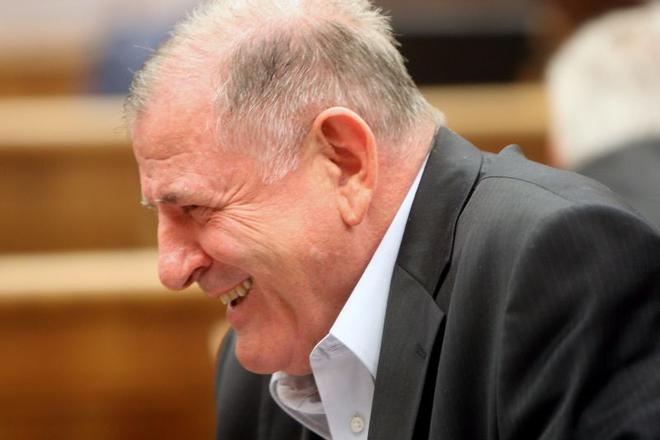THE LEADER of the Movement for a Democratic Slovakia (HZDS) Vladimír Mečiar won a legal case against the publisher of the Plus 7 Dní weekly, the 7 Plus company. The Regional Court in Bratislava ruled on September 16 that the publisher should pay €49,500 to Mečiar, due to the article possibly having been disrespectful towards Mečiar and “damaging his honour, dignity and reputation”, the TASR newswire reported.
Mečiar originally sought €99,582. The court of first instance ruled in April 2005 that the publisher should apologise to Mečiar, but did not order any damages to be paid. Mečiar appealed against that decision. The verdict of the Regional Court is final, cannot be appealed.
Mečiar sued the weekly after it published information in May 2004 on how Mečiar financed his villa Elektra in Trenčianske Teplice, as well as on Mečiar’s mental health. Mečiar’s attorney claimed that readers of the article might have received the impression that money for the villa was obtained in an unlawful way and that Mečiar is mentally ill.
The information appeared in an interview with the former HZDS member Vojtech Tkáč, who said that “the financing of this villa Elektra is a virtual reality” and did not comment on the question of whether or not Mečiar had mental health problems, the Sme daily reported.
Tkáč told Sme on September 16 that he never gave that interview to Plus 7 Dní, a claim he also made in court.
“The audio recording of the interview was played as evidence in the proceedings ,” Roland Kyška, the deputy editor-in-chief of the weekly told Sme, adding that they consider the ruling odd and they intend to forward it to the Supreme Court.
The European Court of Human Rights declared in 1994 that the media shouldn’t be prosecuted for opinions expressed by third parties, for instance in interviews, Sme reported.
“On principle, the freedom of the media to ask provocative questions and to demand that politicians answer them should be protected too,” lawyer Tomáš Kamenec told Sme. “Mečiar is not a private person and the statements about his health condition cannot be taboo for the public.”
The Association of Publishers of the Periodical Press has repeatedly criticised the amounts of damages politicians obtain from the media – such as Prime Minister Robert Fico, his coalition partner Ján Slota and the Supreme Court president Štefan Harabin.
The publisher of the Sme daily has been ordered by a court to pay damages to a former police chief in a civil trial. On July 10, the Michalovce court ruled that the publisher of daily Sme, Petit Press, shall pay €99,000 in damages to former police president Ján Pipta and also publish an apology.
“We are concerned about this tendency, both for the self-censorship it could bring about in the critical media, and for the financial impact such damages could have on the media organisations themselves,” Colin Peters, press freedom adviser for Europe and the Americas with the International Press Institute (IPI) told The Slovak Spectator in a previous interview. “While it is not unheard of for large damages to be awarded in other European countries, the number of cases and the fact that most are initiated by public officials seems to be a trend specific to Slovakia at present.”



 Vladimír Mečiar has reason to celebrate. (source: Sme - Pavol Funtál)
Vladimír Mečiar has reason to celebrate. (source: Sme - Pavol Funtál)